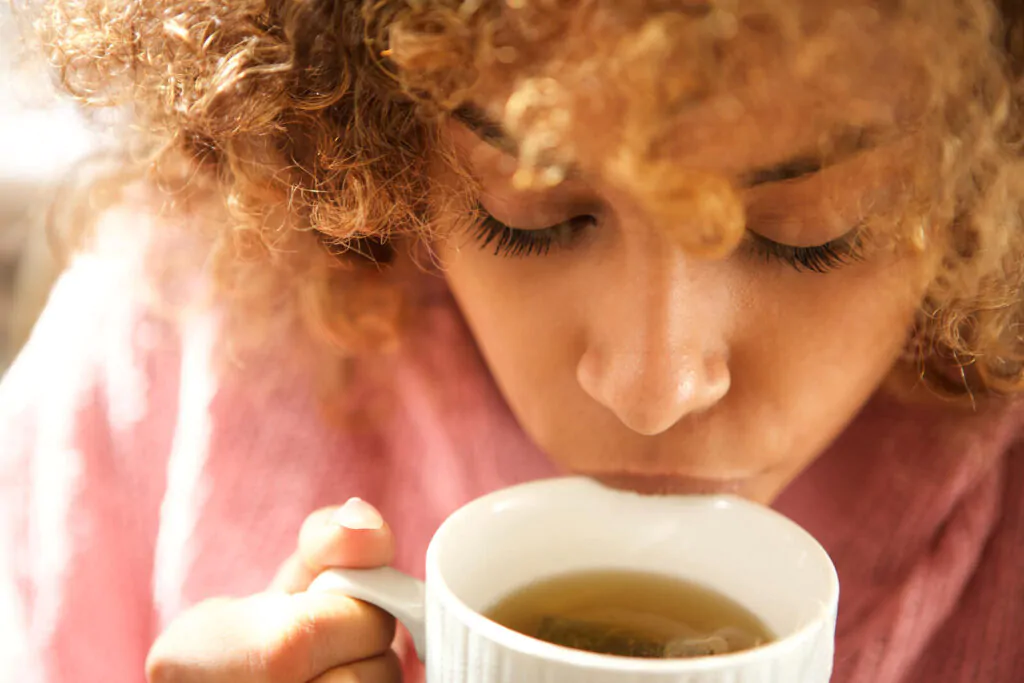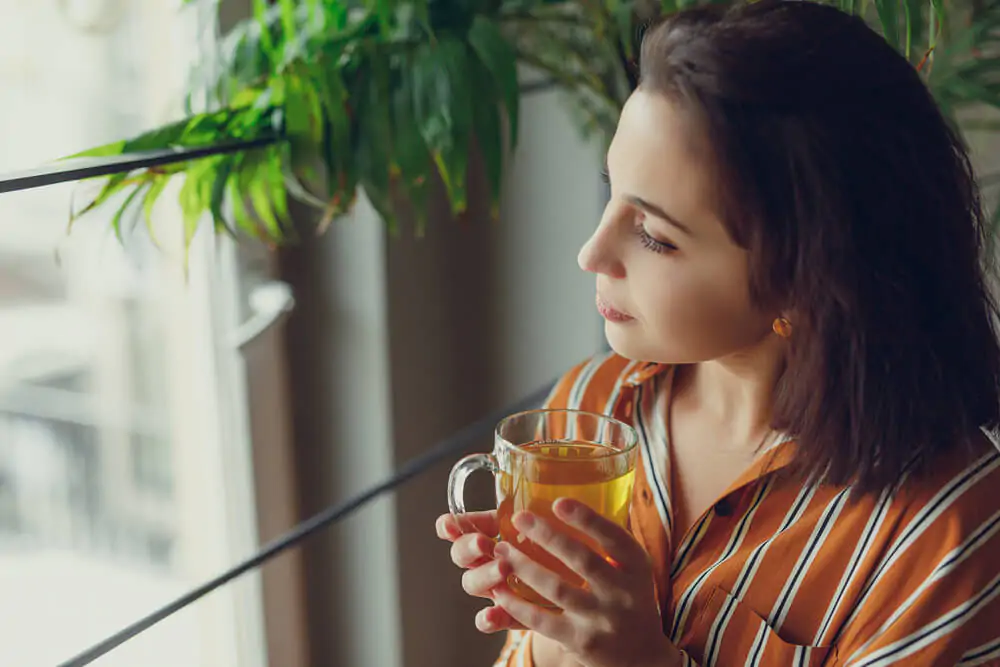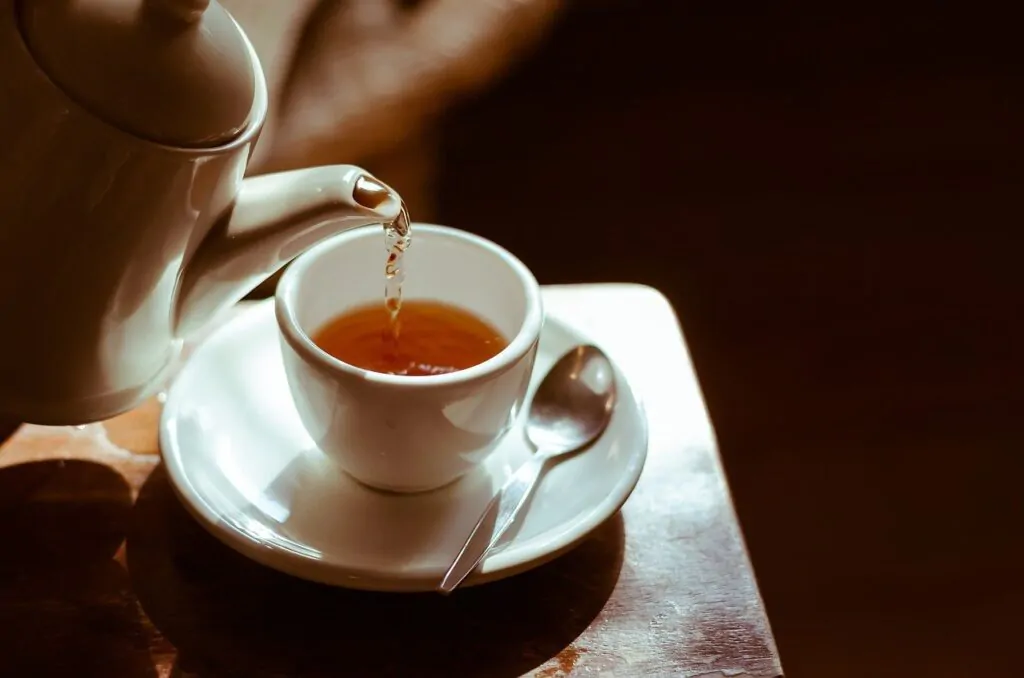Wondering what is Joshanda tea? It is a Pakistani concoction with multiple medicinal benefits. Research into this brew is just beginning, but this beverage is exported and consumed widely around the world.

Joshanda tea has soothed generations of Pakistanis through colds, cases of flu, and allergies. With herbal remedies rising in popularity, more and more people are discovering and researching Joshanda tea.
It’s crucial to understand the difference between the beverage found in Pakistan versus the one available in the West.
History of Joshanda Tea

Like the word “chai” in India, the word “Joshanda” literally means “essence of boiled stuff”, or tea. This beverage originates in Pakistan. The recipe for Joshanda tea emerged centuries ago and now enjoys an almost mythical status within Pakistani culture.
Once you know to look out for it, this brew appears almost everywhere. Although you can find this tea around the world, the authentic recipe for this ancient beverage mostly stays within Pakistan.
You may also be interested in our guide on what is Echinacea tea.
Joshanda Tea Ingredients
Joshanda tea is made from ordinary herbal tea ingredients combined with specific cultural additions. This beverage contains:
- Malabar nuts
- Hyssop
- Peppermint
- Fennel
- Eucalyptus flavors
Authentic Joshanda also includes ephedra and khaskhash, or poppy seed extract.
The traditional way to prepare this drink is to boil these ingredients for many hours before enjoying the beverage.
Today, mass-produced Joshanda tea reduces this boiled brew to a concentrate, and then freezes it. The end product is freeze-dried bits packaged in common foil sachets. Modern Joshanda tea looks and is prepared similar to instant coffee.
Sprinkle these gray granules into your mug and add boiling water. While it may not look appealing, the smell will lure you in! Drink this brew while still warm, up to three times a day.
Uses of Joshanda Tea
Joshanda tea achieved miracle brew status and enjoys this distinction today. A helpful cultural comparison for Americans is chicken soup. Pakistanis rely on and recommend Joshanda tea when someone is sick.
Pakistani devotees claim this beverage helps cure or ease cold and flu symptoms, like coughs, sore throats, and congestion. Joshanda tea enthusiasts also say this concoction:
- Soothes inflammation
- Eases allergies
- Has anti-bacterial and anti-microbial properties
Although it is an ancient remedy, new research is exploring the scientific basis of these incredible claims. Some scientists claim that Joshanda is a viable product for anti-aging and cancer treatment. Scientists hope to next investigate anti-malarial, wound-healing, and anti-cancer uses.
Risks of Joshanda Tea
While some researchers are ready to go all-in on sweeping applications for Joshanda tea, others blow the whistle on its risks. Particularly for the authentic recipe for Joshanda tea, some ingredients may represent harm with long-term use.
These risks occur because of two ingredients used in Pakistan that are illegal in the United States: ephedra and khashkhash (poppy seed extract). These two ingredients transform a simple herbal drink into a potent beverage.
Ephedra is a stimulant commonly found in diet pills. Ephedra exploded in popularity in the 1980s and 1990s as a weight-loss wonder product. But, these ingredients cause heart palpitations, vomiting, and other symptoms. In 2004, the United States Food and Drug Administration banned ephedra, but it is still legal in many nations, including Pakistan.
Khashkhash extract derives from the poppy plant. Again, Joshanda tea is distantly connected to illegal substances with harmful effects, such as opium.
Some believe that Joshanda tea expertly combines all of these substances into a beneficial beverage that soothes instead of harms. The ephedra gives the sick person a burst of energy. Then the khashkhash dulls that energy so the person can recover but is not jittery. There is no evidence this tea promotes addictive behaviors.
If you are looking for other teas to stimulate and revive, why not read our article on the best British tea brands.
How to Find Joshanda Tea

Based on holistic wellness trends, Joshanda tea is easier to find than ever. Modern buyers increasingly seek natural remedies for common illnesses instead of reaching for pharmaceuticals with unknown, synthetic ingredients.
Look for Joshanda tea at a big store near you or a large online retailer. If you have an international grocery store, Joshanda tea will most likely grace the shelves. These products will provide the flavor and potential health benefits of Pakistan’s famous Joshanda tea.
However, these recipes are different than native Pakistani products. As mentioned, some authentic Joshanda ingredients are banned in many Western nations, including the United States.
The Joshanda tea drunk in Pakistan contains a mild stimulant quality, as well as the soothing benefits of a warm beverage. Joshanda tea is sometimes treated as a Happy Hour option, as alcohol is frowned upon in Pakistan.
If you enjoyed this article, you’ll love what is lady grey tea.
Frequently Asked Questions
If you have any further questions about Joshanda tea, take a look at these commonly asked questions.
Does Joshanda Tea Have Caffeine?
Joshanda tea is a herbal that does not have caffeine. However, authentic recipes have ephedra, which is a stimulant.
What Does Joshanda Tea Taste Like?
Joshanda tea is described as a sweet, licorice-flavored beverage. You may taste mint, eucalyptus, or fennel while you drink.
